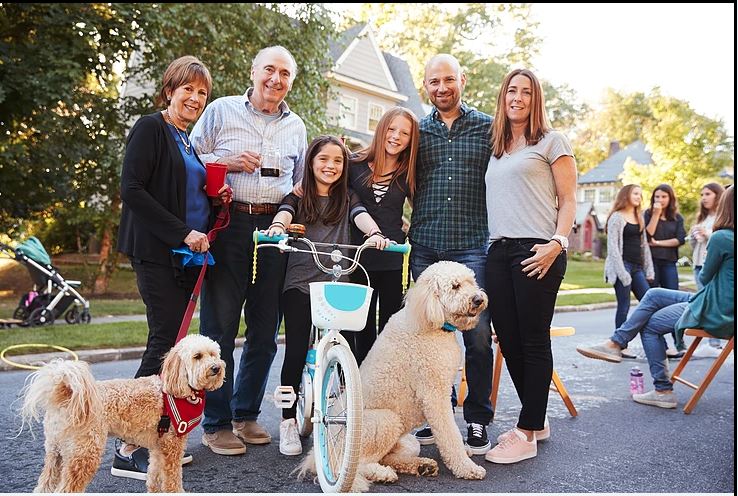You’ll likely lose the “other side” of your family…but with any luck, you’ll get them back

Marriage unites two families – yours and his, the only family either of you have ever known before falling in love and getting married. My husband had 4 older sisters, all of them married with kids. Since I was an only child, this vast extended family often overwhelmed me. Just remembering names and knowing who belonged to whom challenged me at first. Once we were engaged, his family became my family and my parents went along for the ride. Our little nucleus of three expanded to a world where my children were the first grand kids for my parents, but the 11th-15th for my husband’s parents. I felt outnumbered, but I loved that we were part of a bigger picture.
Our annual Christmas party with the entire extended family grew to over 70 people. Cousins and second cousins filled our home with laughter, joy and a touch of chaos which my kids relished. We shared the same fine china and silver patterns, so whenever a sibling had a formal party, the others contributed from their stock to supplement. They were my soundboard on child rearing and a myriad of other issues. I cherished them and so did my children.
Sadly, once our marriage faltered, our extended family did the same. Despite the attempts of “the sisters” to intervene, battle lines had been drawn, accusations were hurled and my extended family disappeared. The void it created in my heart wouldn’t be filled for many years. My children felt it too, if not by intention, by oversight. The isolation was heartbreaking. As my children and I struggled with this isolation, the people we needed most were no longer available to us. The rift lasted for over five years. During that time, I barely visited my parents in Florida, asking them to come to California instead. The fear of bumping into extend family members who lived nearby was just too daunting for us to bear.
Years later, when the truths of our demise became clearer to them, I was blessed to receive reconciliation with most of his family. This year we even spent Thanksgiving in Florida with my ex sisters in law and their families. It was good to be home. We were grateful for the acceptance and delighted in catching up with the “other side” of the family. I can’t say we’ll have the same connection going forward, but we text for birthdays and holidays and we know the door is open. It’s a huge relief, even when we live across the country, to know we’re back in the family fold.
So will you lose the in-laws? Probably, at least temporarily. It all depends on how things end with your ex and how close you were to them before the divorce. Inevitably, blood is thicker than water and your ex will be their family’s preference. On the other side of the spectrum lies my boyfriend’s family. Friends with his ex-wife’s brother in law before he was married, my guy is still tied in to his ex-family. It’s a unique situation and a tribute to parents who kept the extended family together for the sake of the kids. One of my first Christmas holidays with my boyfriend included a day with at his ex-wife’s house with her extended family. She had remarried and had step children of her own. It was a surprisingly warm environment and I was struck by the reality that divorce does not need to destroy family ties. It was a glimpse into the benefits of a “reasonably amicable” divorce.
Your spouse’s family may or may not have become an extension of your own, but you will feel the loss of the people who hold a piece of your history and your children’s. As your marriage ends, keep the lines of communication open with your in-laws as best you can. Acknowledge birthdays, celebrate their triumphs on Social Media and reach out if you hear someone is sick or dying. You may not get a great response, but reasonable people will notice you are taking the time to show you care. If they live close enough, facilitate ways for children to spend time with their aunts, uncles, cousins and grandparents. You can gain friends and fill in the empty spaces family may leave behind. But for your children, who share ancestry with your ex-family, the relationships are vital. Be the intermediary if your ex won’t. Your children will thank you for it.

